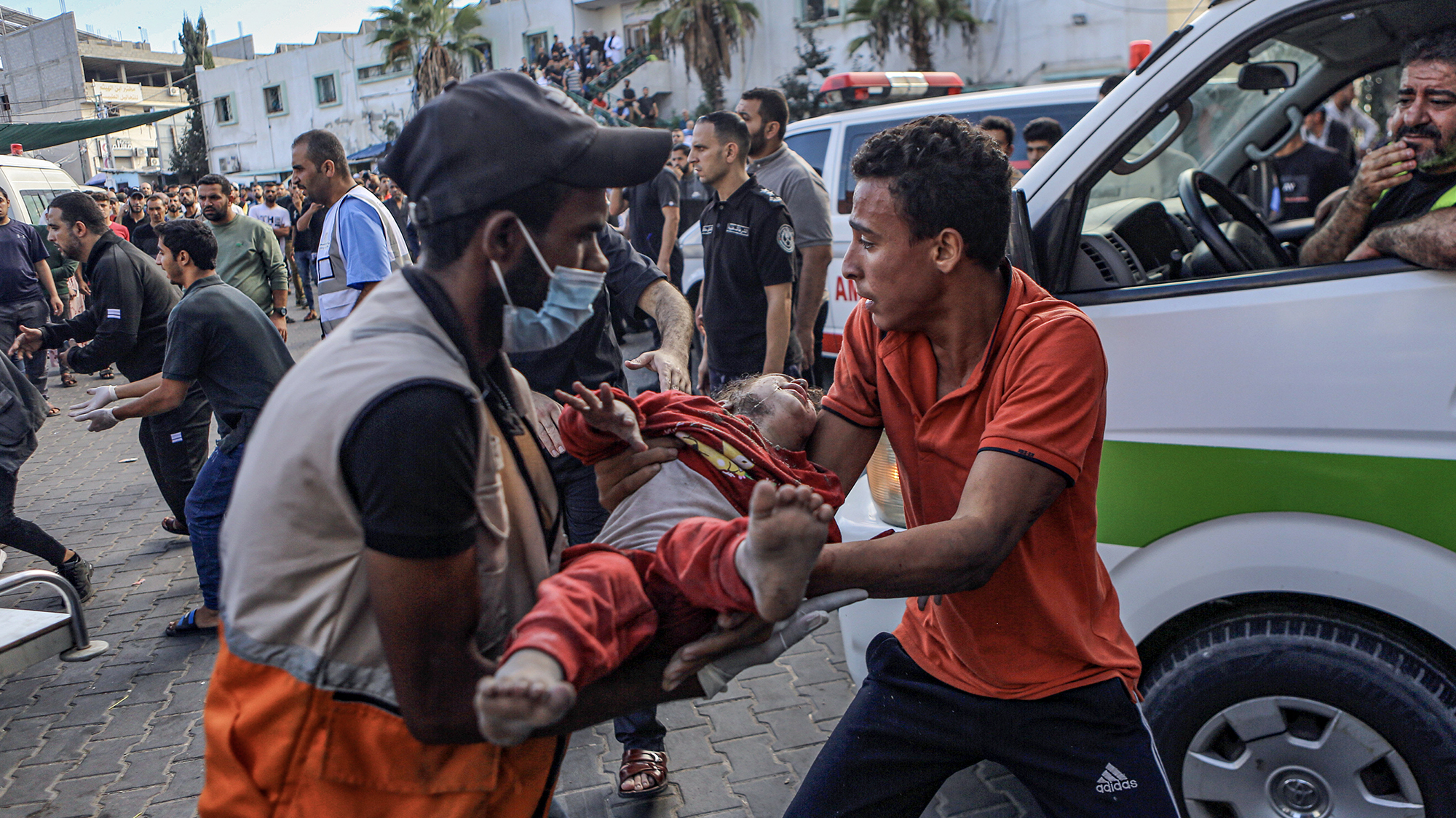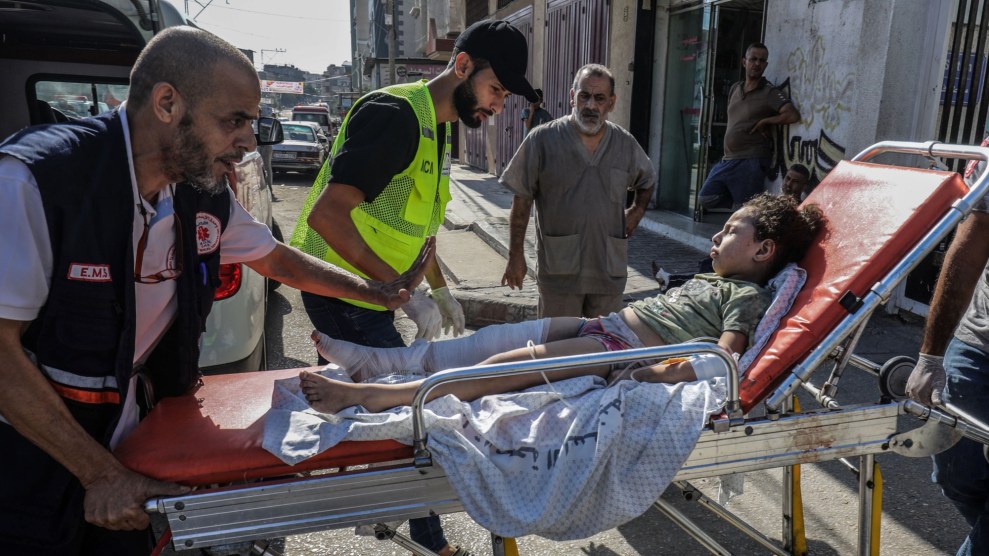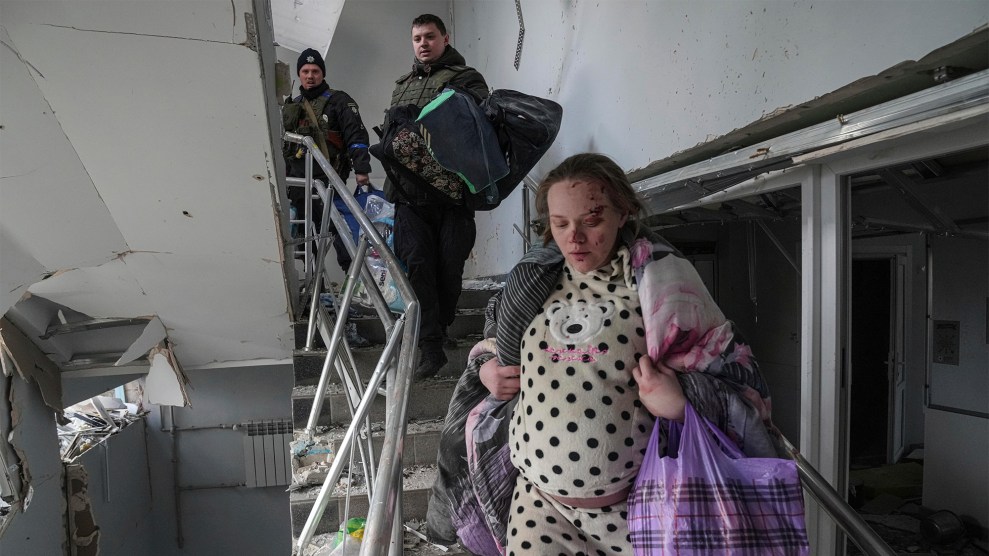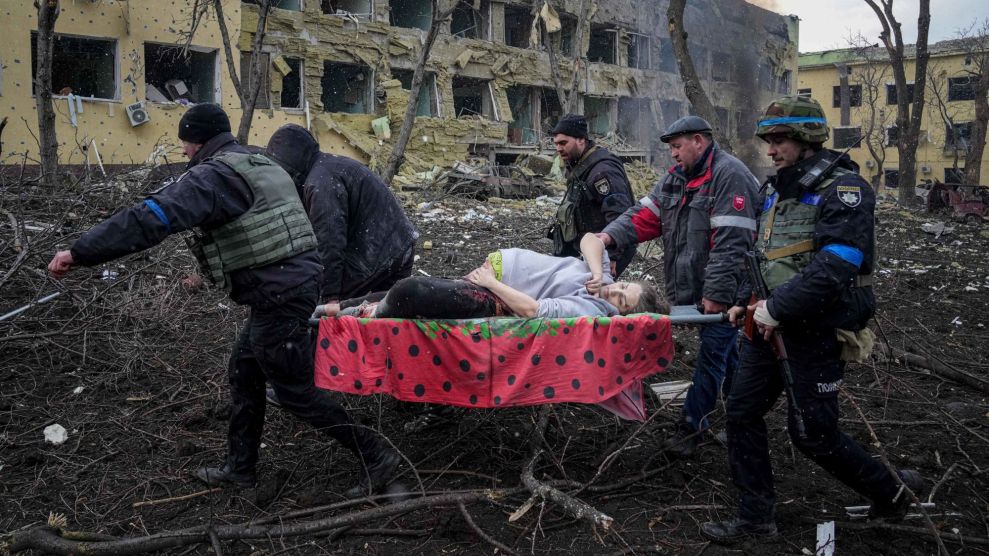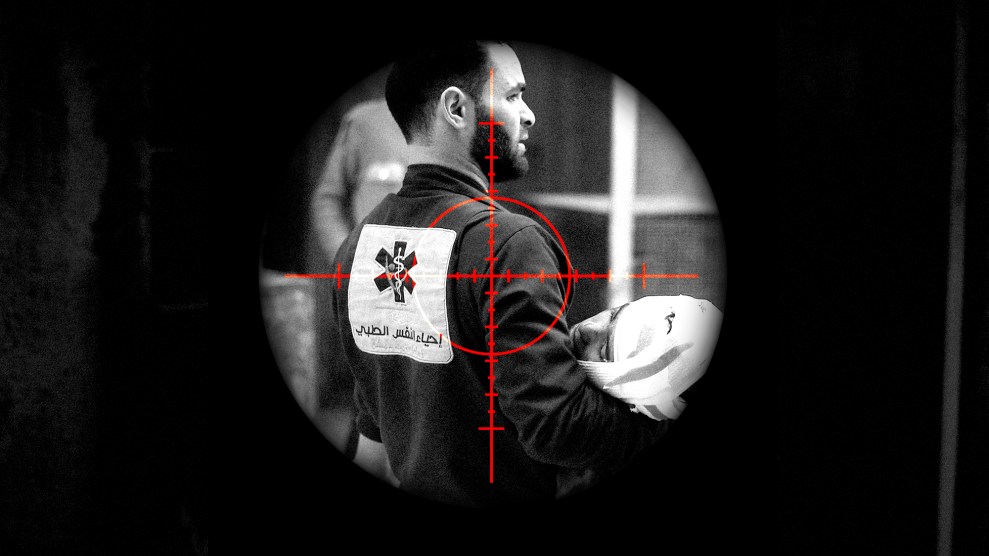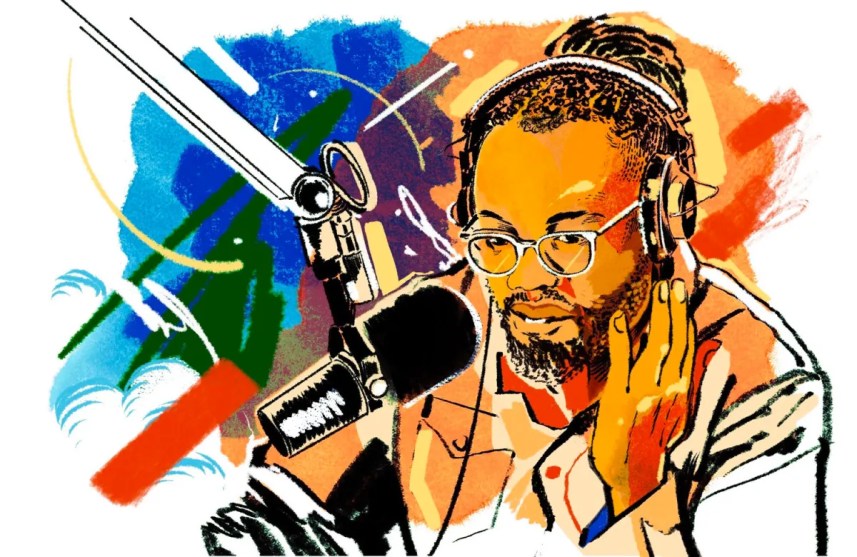In 1996, when Leonard Rubenstein became the executive director of Physicians for Human Rights, the war in the former Yugoslavia had just ended. PHR, a US-based advocacy group, prepared a report on the brutal attacks on Kosovo Hospital in Sarajevo and against health workers in Bosnia and Croatia, and Rubenstein was shocked by what it revealed. He traveled to Sarajevo for the report’s release and had his first experience talking with doctors, nurses, and others who had endured the shelling and survived while tending to the massive numbers of wounded civilians.
Thus began a long career of traveling all over the world and witnessing the singular position of health workers in the midst of conflict zones. First at PHR for 12 years and today at the Bloomberg School of Public Health at Johns Hopkins University, Rubenstein has spearheaded human rights investigations and engaged in academic research in Afghanistan, Bosnia, the Central African Republic, Chechnya, Israel, Kosovo, Liberia, Myanmar, the occupied Palestinian territories, Syria, Turkey, and most recently Ukraine.
As he wrote in his 2020 book, Perilous Medicine: The Struggle to Protect Health Care from the Violence of War, “I heard the anguished stories of health workers who had been arrested, assaulted, shot at, and bombed in the hospitals where they worked; of patients attacked in their beds; of clinics looted or forced to shut down under threat; of emergency responders frantically trying to persuade indifferent soldiers to allow patients in dire need to get through checkpoints.”
Another humanitarian catastrophe is unfolding in the midst of the conflict in Israel and Gaza, and once more health workers face dire challenges. Even before Tuesday’s massive explosion at the Al-Ahli Arab Hospital—which resulted in hundreds of deaths according to the Gaza Health Ministry—the World Health Organization last week described the health system in Gaza as “at a breaking point,” and reported: “Hospitals have only a few hours of electricity each day as they are forced to ration depleting fuel reserves and rely on generators to sustain the most critical functions. Even these functions will have to cease in a few days when fuel stocks are due to run out. The impact would be devastating for the most vulnerable patients, including the injured who need lifesaving surgery, patients in intensive care units, and newborns depending on care in incubators.”
So I reached out to Rubenstein for help in contextualizing what is happening in Gaza, with special attention to hospitals and health workers. The interview has been edited for length and clarity.
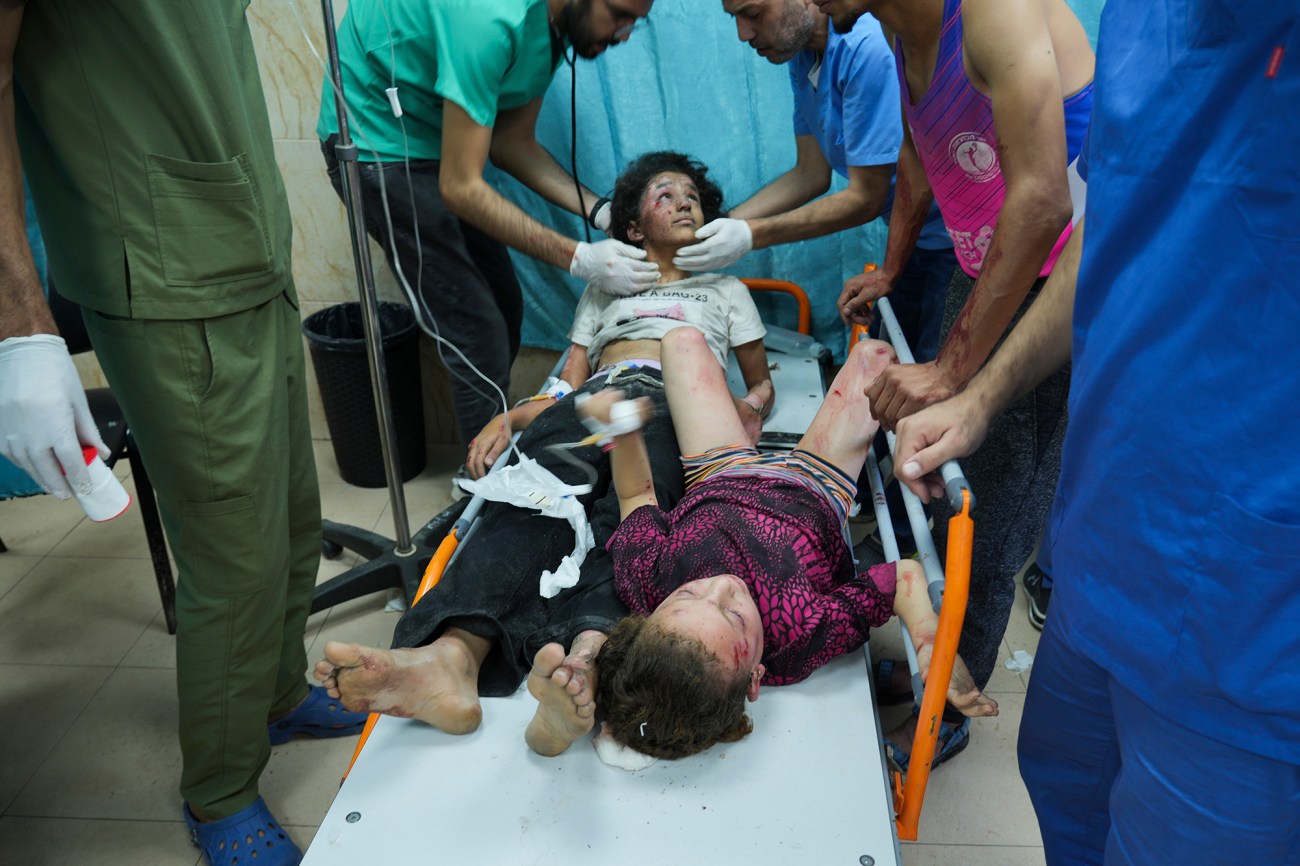
Palestinian children wounded in Israeli bombardment are treated in a hospital in Deir al-Balah, south of the Gaza Strip, Tuesday, Oct. 17, 2023. (Hatem Moussa/AP)
As someone who has studied violence inflicted on health care for decades, can you provide some context for the devastation at Al-Ahli Hospital in Gaza City?
In my twenty-five years of seeking to protect health care in war, this is by far the worst incident when measured by deaths of people in a hospital. Responsibility for the incident is contested, but what seems clear is whether Islamic Jihad or Israel was responsible for it, precautions required by international law to avoid or at least minimize harm to patients, hospitals, staff, and others in military operations were likely absent. Hamas and its allies never take such precautions; on the contrary, it fires rockets indiscriminately in civilian areas. The record of Israel in taking such precautions in past wars in Gaza was spotty. While we don’t know its targeting practices and its mechanism for minimizing harm to civilians in this war, the sheer number of civilians killed, hospitals damaged, and the 6,000 bombs in Gaza in a single week—more than dropped in an average year during the war Afghanistan—raises serious questions about its willingness to abide by the law.
Could you describe the unique position of health care workers and facilities in conflict zones?
We know that contemporary wars terribly harm civilians, as explosive weapons used in their neighborhoods result in traumatic injuries even as access to care health care and hospitals’ capacity has been severely compromised by the violence. Children’s vaccination programs are often at risk. Few resources are available to address the psychological trauma people suffer in war.
Health workers and hospitals are critical resources to address the multiple health crises of the wars. They need to perform difficult surgeries and treat burn injuries to save lives while also trying to ensure that safe childbirth, dialysis for kidney disease, childhood vaccinations, and other essential services are maintained.
Health workers play a special role as well because they care for all people caught up in the conflict, whether civilians or soldiers, friends or enemies. Their job is to serve all humanity. And they do.
What is the precedent for why they should be entitled to some protection?
More than 150 years ago the first Geneva Convention recognized that without protection of health care services, the wounded and sick will suffer and die. Their fundamental objective is to make care available to people in need, and, of course, in order to do that, health infrastructure must survive and health workers must be protected so as to be able to do their jobs. Over time, the Conventions’ protections have been broadened and strengthened. Today international law, which binds all combatants, whether state military forces or non-state armed groups, forbids attacking the wounded and sick, health infrastructure, and health workers. Beyond that, it requires special precautions to avoid harm to all of them. Attacking health facilities and health workers is a war crime. The law has also recognized that health workers should not be punished for doing their duty, such as providing needed care impartially, which includes enemy soldiers.
You have traveled all over the world, in many conflict zones, and witnessed what these workers have to face. Could you describe some of the recurring themes you’ve seen?
While the law has been in place for so long, the history of compliance is dismal. Health workers are subjected to the shelling of, missile attacks on, and looting and burning of their facilities. They have been arrested for providing care to people deemed enemies, and obstructed in their efforts to evacuate severely injured people. In the war in Ukraine, Russia has launched more than 1,000 attacks on health care in a mere 18 months of war. I interviewed a physician there whose primary care clinic was shelled and taken over by Russian troops, and who severely abused her. In Syria, I spoke to doctors who were arrested by regime security forces; they told me that they feared telling their captors that they were doctors because they would be singled out for harsher treatment. After the military coup in Myanmar in 2021, close to 800 doctors have been arrested, either for participating in pro-democracy activities or providing care to people opposed to the regime. Many have been killed.
I know that you have visited Gaza a few times. It was already a difficult place and its hospital and ambulances already faced violence. What was it like?
I first went to Gaza in the 1990s, and returned in 2002, during the second Intifada. During that volatile time both in the West Bank and Gaza, Palestinian ambulances were often shot at as they tried to evacuate wounded people. Paramedics were caught between pleas from the families to come to the rescue of their loved ones and pressure from their own families not to risk death in doing so. Some were in fact killed.
After Hamas’ takeover of Gaza in 2007, periodic eruptions of conflict between Hamas and Israel included violence inflicted by Israeli Defense Forces on hospitals and ambulances. In conflicts between 2008 and 2015, the World Health Organization reported that more than 200 health facilities were damaged or destroyed in Gaza. There were numerous cases where an ambulance was cleared by the Israeli Defense Forces for passage for evacuation of people wounded but were nevertheless fired at, and in some cases killed.
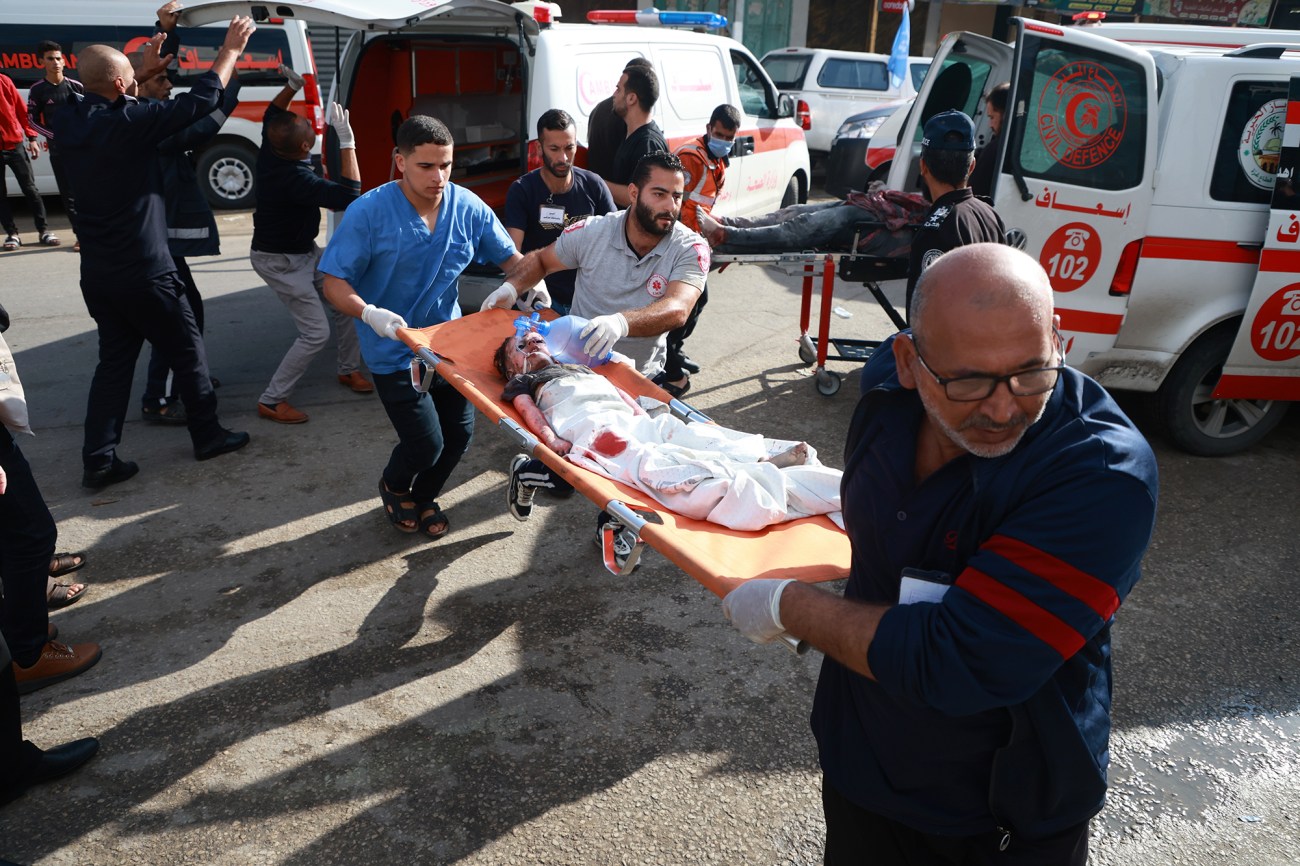
Palestinians evacuate victims following an Israeli airstrike on buildings in Rafah, in the southern Gaza Strip on October 17, 2023, amid the ongoing battles between Israel and the Palestinian group Hamas.
Firas El_shaer/APA/Zuma
What is your sense of what the situation on the ground is like there now?
Doctors there are now coping with an impossible situation. Hospitals are flooded with huge numbers of people suffering complex traumatic injuries and severe burns, and hospitals lack the capacity and even beds to accommodate them. Many have no place to lie but on the floor. They are short of supplies and drugs, and running out of fuel for generators. Health workers are exhausted from the hours they are working to try to save as many lives as they can.
When you see that water and electricity are being cut off, what do you think will happen to medical workers and those who are in the hospitals? What have you seen in places like Syria?
Israel’s cut off of all water, food, electricity, and fuel in Gaza and its refusal to open a humanitarian corridor to date are breaches of international law and are having a catastrophic impact on people in Gaza. Additionally, most hospitals in Gaza are in the north, which Israel ordered evacuated in anticipation of its military assault. The World Health Organization said forcing patients leave the 22 hospitals there would be a “death sentence” for the sick and wounded.” But if they stay, they are at palpable risk from further airstrikes and the anticipated ground assault.
In Syria, where the regime obstructed humanitarian access and imposed sieges, the population suffered immensely. In Gaza it’s different. In addition to the blockade, more than a million people are being forced to leave their homes, often traveling without access to food, water, and shelter.
I remember from your book that one challenge that health workers faced was treating injured enemy combatants. What are the issues around that in some places? Is that also the case in Gaza?
I have confidence that health professionals in Gaza and Israeli Defense Forces medical personnel will comply with their duties under the Geneva Conventions and medical ethics to treat the wounded and sick irrespective of their affiliations or identity.
If there were one thing you would like the rest of us, sitting in relative comfort in the US, to understand about war or conflict zones and health workers, what would it be?
It is to demand that our political officials provide the leadership and reforms needed to ensure that our own military forces abide by the law and hold those who commit war crimes—whether our own troops or those of other countries or armed groups, and whether allies or enemies—are held accountable in courts of law.
